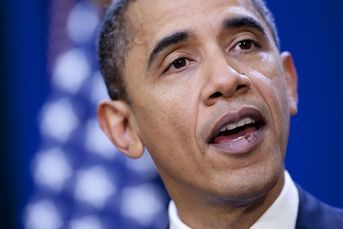My hero, Judge Jed Rakoff
Federal Judge Jed Rakoff, who challenged the $33 million settlement worked out between the Securities and Exchange Commission and Bank of America Corp., is my new hero.
Federal Judge Jed Rakoff, who challenged the $33 million settlement worked out between the Securities and Exchange Commission and Bank of America Corp., is my new hero.
Instead of doing what industry observers ex-pected and rubber-stamping the deal, he delayed his decision and, in doing so, raised questions about the SEC’s resolution policies.
In its settlement with BofA, the SEC broke from its tradition of seeking to place the primary penalty on individuals responsible for disclosure violations. In the BofA agreement, the bank is settling charges that it failed to disclose to shareholders that Merrill Lynch & Co. Inc. had agreed to pay up to $5.8 billion in bonuses just before its acquisition.
Mr. Rakoff said that he wants to establish that the payment was truly in the public’s interests, as it allowed BofA to avoid either admitting or denying the allegations.
Following the hearing, he said: “The settlement seems to be lacking in transparency. Don’t I need to know what the truth is to make a determination?”
Both sides were ordered to reconvene today to submit new papers. The judge set Sept. 9 as the date on which to hear their responses.
Essentially, Mr. Rakoff is challenging the SEC to go after the individuals who did wrong, not a faceless company.
During a June congressional appearance, SEC Chairman Mary Schapiro said: “The SEC needs to send a clear message that corporate wrongdoing will not be tolerated, and penalties for securities violations will be stiff.”
But corporations don’t commit wrongdoing; individuals do. So in order to prove that Ms. Schapiro means business, she must settle not only with corporations but also with the individuals at those companies responsible for the actions.
The SEC complaint accused BofA of misleading its shareholders. But who at the company did the misleading?
Instead of digging in to find out how the bonus decisions were made and by whom, the SEC cut a deal in which BofA got off with a chump change fine. To put the fine in perspective, its $33 million price tag is less than any one bonus received by the Merrill executives last year.
To his credit, Mr. Rakoff asked what any of us would have asked had we been in his place: Why, given the “serious questions” raised in its complaint, hadn’t the SEC gone after more facts? And if BofA of Charlotte, N.C., and Merrill of New York conspired to lie to shareholders about bonuses that had been agreed to when the merger was signed, then why didn’t the SEC try to figure out exactly who lied?
“You filed a rather uninformative, bare-bones complaint,” Mr. Rakoff told SEC lead lawyer David Rosenfeld, who reportedly replied meekly that the commission hadn’t made any allegations against specific individuals.
The response didn’t satisfy Mr. Rakoff.
“I would be less than candid if I didn’t express my continued misgivings about this settlement at this stage,” he told the lawyers for both sides. “When this settlement first came to me, it seemed to be lacking, for lack of a better word, transparency.”
Mr. Rakoff went on to explain that accepting the settlement “would leave uncertain the truth of the very serious allegations made” by the SEC and whether any of the bonus money was “derived directly or indirectly” from the billions of dollars that BofA received from the government.
“The judge seems to have the feeling the SEC pulled a punch, and that’s why he wants to get down to the facts of who knew what and when,” Cornelius Hurley, director of the Morin Center for Banking and Financial Law at Boston University, said in a published report. “This comes as the SEC tries to recover some of its damaged reputation in the enforcement area. They’re not getting a gold star for this one.”
The judge has sounded an alarm. Let’s hope the SEC heeds his warning and that members of Congress are paying attention.
“What the judge is trying to get at is, was there actual fraud here?” Mr. Hurley said. “The risks are, they go back to their corners, and the SEC really does attempt to prove wrongdoing.”
Mr. Rakoff is putting the SEC’s feet to the fire; let’s hope it can take the heat.
Jim Pavia is the editor of InvestmentNews.
Learn more about reprints and licensing for this article.





